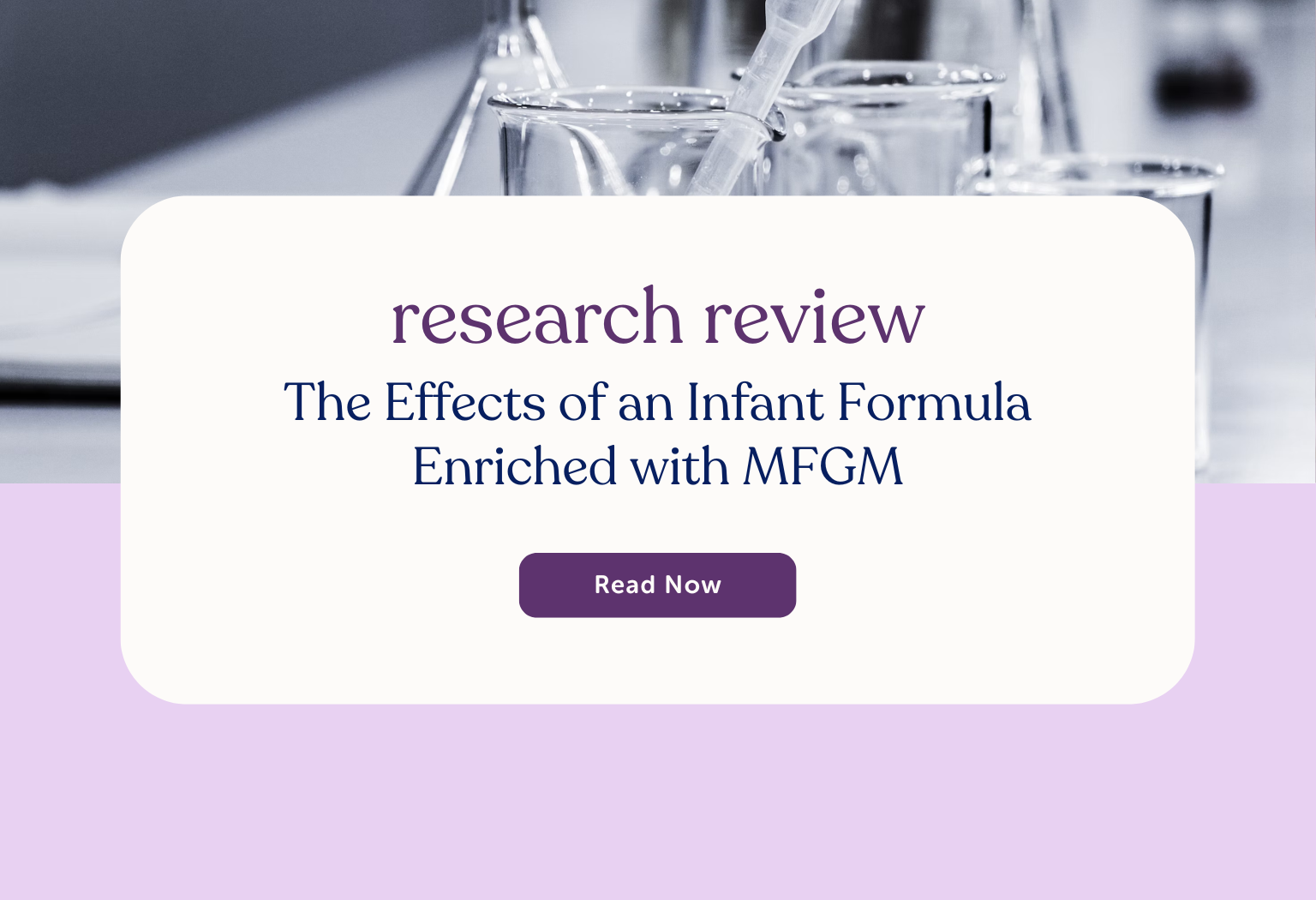Comprehensive Summary of The Effects of an Infant Formula Enriched with Milk Fat Globule Membrane, Long-Chain Polyunsaturated Fatty Acids, and Synbiotics on Child Behaviour up to 2.5 Years Old: The COGNIS Study
The COGNIS study investigates the long-term effects of an enriched infant formula on children’s behaviour compared to standard infant formula and breastfeeding. The enriched formula contains bioactive nutrients such as Milk Fat Globule Membrane (MFGM), Long-Chain Polyunsaturated Fatty Acids (LC-PUFAs), and synbiotics (a combination of prebiotics and probiotics).
The study included 220 healthy full-term infants who were randomized to receive either the standard formula (SF) or the enriched formula (EF) during their first 18 months of life. A reference group of 50 exclusively breastfed (BF) infants was also included. The children’s behaviour was evaluated using the Child Behaviour Checklist (CBCL) at 18 months and 2.5 years.
Results:
- Behavioural Assessment
- At 2.5 years, children fed with EF showed fewer pathological affective problems compared to those fed with SF.
- SF children were more likely to be classified as borderline for internalising problems than BF children.
- Higher externalising problems were observed in SF children compared to EF and BF children.
2. Maternal Influence
- Higher maternal IQ was associated with lower internalising and total problem scores in children at 18 months.
- Higher maternal educational level was linked to fewer ADHD, internalizing, externalizing, total, and anxiety problems in children at 2.5 years.
3. Statistical Analysis
- ANCOVA and logistic regression models were used to account for confounders such as maternal educational level, IQ, and smoking during pregnancy.
- Generalised linear mixed models (GLMM) indicated significant differences in internalising, externalising, total, ADHD, and oppositional defiant problems among study groups.
Discussion
The enriched formula appears to positively influence behavioral development, showing outcomes similar to those of breastfed children. The study emphasizes the importance of maternal factors, such as IQ and education, on child development. The synergistic effects of the various bioactive compounds in the enriched formula may contribute to these beneficial outcomes.
Conclusion
The study suggests that infant formula enriched with specific functional nutrients can lead to better behavioral outcomes compared to standard formula. However, maternal education and IQ also play crucial roles in child development. Further research is needed to fully understand the mechanisms and long-term impacts of these findings.
References
Nieto-Ruiz A, Diéguez E, Sepúlveda-Valbuena N, Herrmann F, Cerdó T, López-Torrecillas F, De-Castellar R, Jiménez J, Pérez-García M, Miranda MT, Catena A, García-Santos JA, Bermúdez MG, Campoy C. The Effects of an Infant Formula Enriched with Milk Fat Globule Membrane, Long-Chain Polyunsaturated Fatty Acids and Synbiotics on Child Behavior up to 2.5 Years Old: The COGNIS Study. Nutrients. 2020 Dec 15;12(12):3825. doi: 10.3390/nu12123825. PMID: 33333767; PMCID: PMC7765166.

